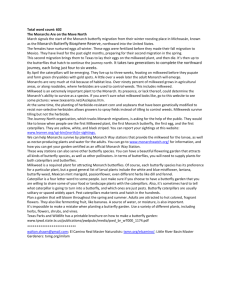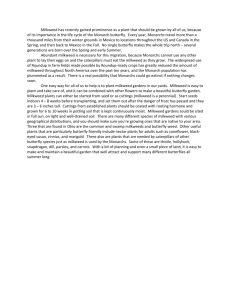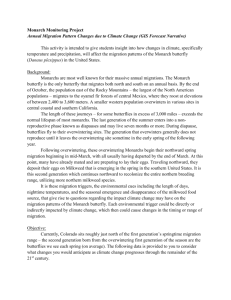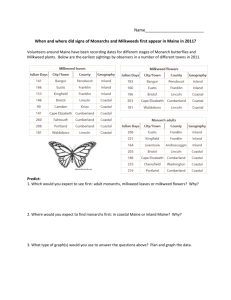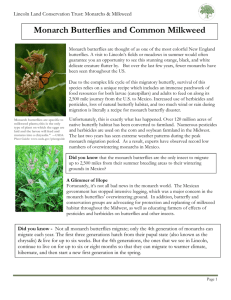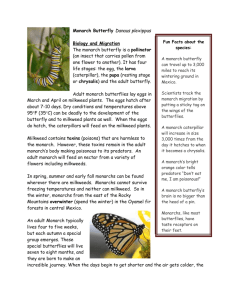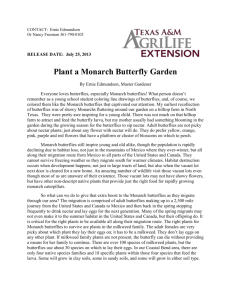Press Release Chgo Greens vs Agribusiness
advertisement
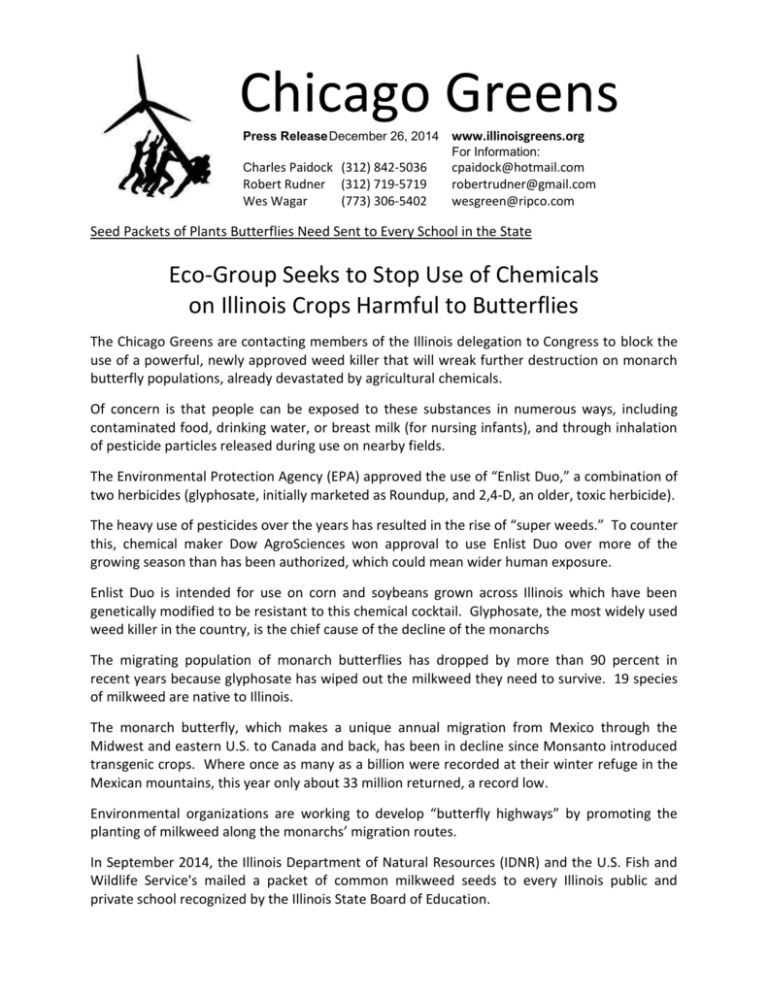
Chicago Greens Press Release December 26, 2014 www.illinoisgreens.org For Information: Charles Paidock (312) 842-5036 Robert Rudner Wes Wagar (312) 719-5719 (773) 306-5402 cpaidock@hotmail.com robertrudner@gmail.com wesgreen@ripco.com Seed Packets of Plants Butterflies Need Sent to Every School in the State Eco-Group Seeks to Stop Use of Chemicals on Illinois Crops Harmful to Butterflies The Chicago Greens are contacting members of the Illinois delegation to Congress to block the use of a powerful, newly approved weed killer that will wreak further destruction on monarch butterfly populations, already devastated by agricultural chemicals. Of concern is that people can be exposed to these substances in numerous ways, including contaminated food, drinking water, or breast milk (for nursing infants), and through inhalation of pesticide particles released during use on nearby fields. The Environmental Protection Agency (EPA) approved the use of “Enlist Duo,” a combination of two herbicides (glyphosate, initially marketed as Roundup, and 2,4-D, an older, toxic herbicide). The heavy use of pesticides over the years has resulted in the rise of “super weeds.” To counter this, chemical maker Dow AgroSciences won approval to use Enlist Duo over more of the growing season than has been authorized, which could mean wider human exposure. Enlist Duo is intended for use on corn and soybeans grown across Illinois which have been genetically modified to be resistant to this chemical cocktail. Glyphosate, the most widely used weed killer in the country, is the chief cause of the decline of the monarchs The migrating population of monarch butterflies has dropped by more than 90 percent in recent years because glyphosate has wiped out the milkweed they need to survive. 19 species of milkweed are native to Illinois. The monarch butterfly, which makes a unique annual migration from Mexico through the Midwest and eastern U.S. to Canada and back, has been in decline since Monsanto introduced transgenic crops. Where once as many as a billion were recorded at their winter refuge in the Mexican mountains, this year only about 33 million returned, a record low. Environmental organizations are working to develop “butterfly highways” by promoting the planting of milkweed along the monarchs’ migration routes. In September 2014, the Illinois Department of Natural Resources (IDNR) and the U.S. Fish and Wildlife Service's mailed a packet of common milkweed seeds to every Illinois public and private school recognized by the Illinois State Board of Education.



